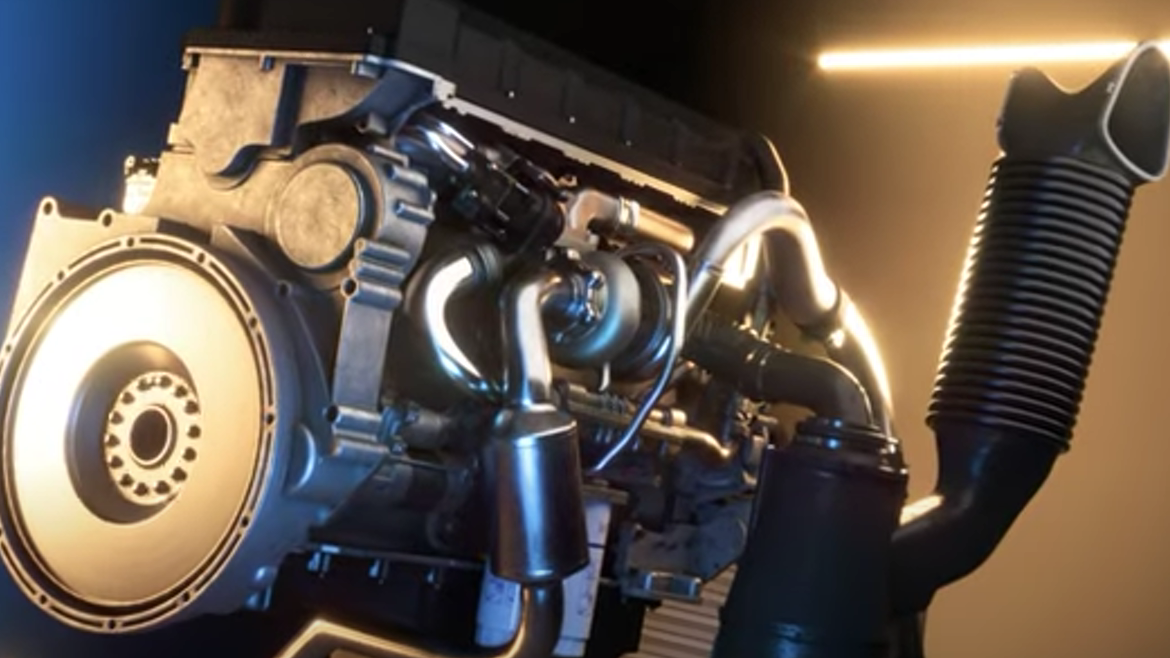Sep 19, 2019
Posted by Matt Joyce, Vice President, Global Sales & Marketing
Whether they know it or not, many everyday drivers throughout the U.S. make an upgraded choice when it comes to filling their gasoline tank.
Why? Higher-performance additives have proliferated in the majority of name-brand gasoline sold throughout the country. Driven in part by the TOP TIER™ Gas program, gasoline retailers have included additive technology to satisfy automakers who desired higher detergency levels in gas used to power their vehicles. Fuel additives have been deployed to help reduce deposits, prevent engine damage and enable a generally higher level of engine performance.
That’s great for passenger car drivers—but how about heavy-duty diesel trucks?
Logging hundreds of thousands of miles across the country, one might guess that high-performance fuels would be even more important. But the fact is, diesel fuel sold throughout America has not traditionally been subject to the same kind of performance-boosting standards that gasoline has—and that can have an impact on the total performance of diesel engines.
Like with additive-enhanced gasoline, there are significant benefits to be had with high-performance additives in diesel fuel formulations. It’s the right choice for fleet owners and operators, or anyone who operates a diesel-powered engine. Here’s what to know about additive-enhanced diesel:
Why Additive-Enhanced Diesel Matters.
Just as automakers helped spur the development of the TOP TIER Gas program, in 2017, TOP TIER Diesel was officially introduced for similar reasons. Here’s a quick breakdown from Fuels + Lubes magazine:
OEMs have long been unhappy with a lack of movement in diesel fuel quality within standard-setting bodies. Diesel fuel regulations in North America have failed to keep pace with diesel engine design and equipment changes impelled by emissions regulations and customer demands. Comparisons between the U.S. standards for diesel and biodiesel and the EU standards or Worldwide Fuel Charter have also been unflattering.
Today’s diesel engines are complex—and that means the fuels and fluids used to power them must keep pace. New engines must meet demanding fuel economy, power, emissions and reliability targets, and fuel quality is vitally important to ensure reliable, optimized performance. New diesel fuel additive technology can help make it a reality.
Higher Performance.
Diesel engines utilizing additive-enhanced diesel can realize a range of benefits. The higher-quality fuel can help reduce both internal and external deposits on fuel injectors, improve lubricity resulting in less wear on injectors and the engine as a whole, and improve fuel stability for fewer deposits in fuel system components. The full performance standard can be found here. Each of these benefits results in a higher-performing engine.
Here’s an example: Consider an engine that uses commonly available diesel fuel without enhanced additive performance throughout its lifetime. While the use of that fuel doesn’t mean the engine will fail outright, it does mean the engine will lose substantial performance over time, compared with a vehicle using additive-enhanced diesel. Fuel injector deposit issues can be significant, causing up to a 3% loss in fuel economy. That might not sound like much on the face of it, but 3% is a big number for a Class-8 truck traversing from coast-to-coast.
For example, for a fleet with 100 trucks, each driving 100K miles per year and getting 8 miles per gallon at $3.00/gallon, 3% fuel savings is $1,125/year savings/truck—or over $100k/year total, for a comparatively small investment in using additives.
Poor quality fuel can likewise have a gradual, negative impact on the engine’s overall power; drivers may not perceive an immediate loss in torque, but eventually the loss in performance can become a major headache.
Additive-Enhanced Diesel Availability.
Solving the potential issues associated with traditionally available American diesel fuel isn’t as simple as it might sound. While its counterpart in the passenger car gasoline market may make up the majority of what’s available at retail, additive-enhanced diesel makes up a miniscule portion of available diesel fuel in the U.S.
While additive-enhanced diesel and the TOP TIER Diesel program are still relatively new in the United States, they are no less important. Engines continue to advance, and the importance of high-performance fuel will become increasingly important. In order to ensure that more high-performance diesel fuel makes its way into the marketplace, fleet owners and operators must be educated to demand the performance that additive-enhanced diesel fuel can provide.
Armed with the knowledge and the benefits that enhanced fuels can provide, fleet owners and operators can help create the necessary demand for additive-enhanced diesel and fuels that better enable engine performance.
Our View
At Lubrizol, we believe that high-performance fluids are necessary for the engine technology of today and tomorrow to meet its full potential. In the heavy-duty trucking market, additive-enhanced diesel is an important program that can help ensure cleaner, more fuel efficient and long-lasting performance among the trucks that help make our society work. It’s time that additive-enhanced diesel makes its way into more diesel trucks on Americas roads and highways.









